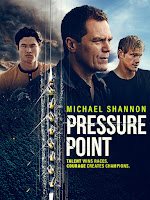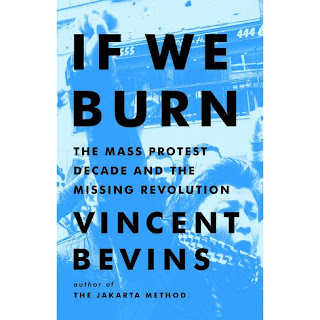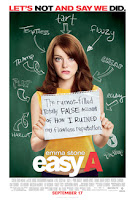“The old world is dying, and the new world struggles to be born: now is the time of monsters.” So said Gramsci, and he might have been thinking about the strange conjuncture of the “Cosmic Right” - a blend of new age weirdness, alternative healing and wellness, and reactionary politics.
Perhaps the seeds of this movement had been germinating out of sight for a while, but the first shoots became apparent with the beginning of the Covid-19 pandemic. It began with “Stand in the park” protests against the lockdown restrictions, and soon there was a movement - or at least a series of Telegram channels and social media presences - with various names, including the Freedom Movement, the Sovereign Citizens Movement, the White Rose (named after the German resistance to the Nazis).
And there was The Light, a free newspaper full of anti-vaccination misinformation, anxiety-inducing material about radio waves and surveillance by the state and big tech, and a ragbag of other conspiracy theories.
It’s hard to overstate how horrible The Light is. It contains sympathetic articles by and about figures from the traditional far right, like Anne Marie Waters of “For Britain” and “Pegida UK” - who in turn uses the paper as a platform to praise Tommy Robinson of the English Defence League. Another regular contributor is Niall McCrae, a former lecturer involved in far right organisation Hearts of Oak, with Tommy Robinson. McCrae has co-authored with Robin Tilbrook, the founder of the far right “English Democrats” party, originally known as the English National Party. There are articles in defence of Holocaust denial and supporting the genocidal antisemite Graham Hart.
There’s homophobia and transphobia, and misinformation about sex education in schools. There are attacks on feminism, women’s equality, contraception and abortion rights, and the claim that there is a “war on masculinity”.
And there is a relentless promotion of climate change denial and obfuscation, alongside attacks on environmentalists and especially on any restrictions on car use.
The themes in the paper are picked up by an emerging street movement. There are rallies with speakers whose websites feature antisemitic material drawn from “The Protocols of The Elders of Zion” and conspiracy-laden accounts of the toothless United Nations sustainability initiative Agenda 2030. In towns across the UK, and now in Ireland, there are weekly stalls distributing the paper as well as other books and pamphlets. There is a strong presence in several towns in the South West, and the paper has been spotted in London and in towns in the North.
Groups of protestors converged on Oxford to protest against traffic calming schemes and “Fifteen Minute Cities”, another well-intentioned town planning idea about localisation of services that is characterised as a plan to create urban ghettos in which citizens will be confined. A mob of ‘conspiraloons’ stormed a meeting of Glastonbury Town Council and then crowed that it had forced the administration - the equivalent of a parish council, with few powers - to abandon its non-existent plans for a fifteen-minute city.
What is this?
For some, this phenomenon is both unprecedented and confusing. Sure, the movement’s messages seem to come from the right, but its cultural style doesn’t. The people who hand out The Light look like hippies. The material often has an anti-corporate or Trump-style “workerist” slant to it, with lashings of libertarianism. In our little town of Stroud, where the movement has gained a foothold among wellness practitioners and some members of the Steiner community, the most prominent supporters are ex-socialists and environmental activists. Some continue to wear Jeremy Corbyn t-shirts and loudly profess themselves to be socialists. The Light’s editor (a flat-earther) began his involvement in politics as an anti-fracking campaigner.
So a new description and analysis is proposed to explain what’s going on. Unsurprisingly some commentators revive the vapid “horseshoe theory”. Others have coined the term “diagonalism” to characterise the leftists who turn right, and this seems to have struck a chord in Germany (as Querdenker), where the pandemic and anti-vaxx activism created a steady pipeline from the Greens and Die Linke to the AfD.
Naomi Klein, in her recent perceptive book Doppelganger, prefers to talk about the “mirror world”, in which rightwing politicians pick up on areas of anxiety that the left has either ignored or lost its interest - technological surveillance, the failings of the medical-industrial complex, the capture of international organisations by mega-corporations, the hypocrisy of the liberal elite and its techno-fixes for profound systemic failures…
I’m not so sure that what we’re looking at is so unprecedented. When “classic” fascism first arrived, in Italy in the early 1920s, some people on the left were confused. Fascism was against traditional conservatives and institutions, against laissez faire and free market economics. It presented itself as a “third way”, modernising, beyond traditional conservatism and socialism, and it was in favour of a great deal of state direction of the economy and society - unlike traditional conservatives.
Mussolini’s movement in Italy recruited syndicalists and anarchists as well as nationalists. Mosley’s British Union of Fascists was preceded by his “New Party” which attracted former members of the left-wing Independent Labour Party, and a few stayed the course with the later incarnation as fully fledged fascists. Despite his enthusiasm for the British Empire and colonial wars, Mosley was a campaigner for “peace” in the later 1930s, opposing any kind of confrontation with Europe’s Nazi and fascist regimes. Our new rightists are keen to advocate for peace with Putin.
In Germany there were so-called “Beefsteak Nazis”, allegedly brown on the outside but red on the inside. Fabians like George Bernard Shaw admired Mussolini’s hostility to Italy’s liberal institutions. Mainstream social democrats like Henri de Man in Belgium openly embraced fascism.
It’s a defining feature of the far right that it presents itself as against the system. Whereas the mainstream right says that the system is under threat and needs to be defended, the far right says that the system has already been conquered by those it defines as enemies, and it needs to be taken back so that the natural order of things can be restored. So they might be revolutionaries, but they want a revolution that will reimpose hierarchy and inequality.
This can get very weird. In the US the QAnon movement and its wider circle of alt-right militant Trump supporters, which talked a lot about the elites and the ‘deep state’, hoped for a military coup to restore the constitution and Trump to the presidency. It is quite alarming to see Free Alex Jones Tee-shirts on the High Street in Stroud.
So the far right will sometimes be hostile to the same things that the left opposes - but this doesn’t really mean that we share common ground. They are hostile to the banking system, but this hostility is grounded in a racialised understanding of financial institutions (“controlled by Jews”). They are hostile to the international organisations intended to ameliorate the worst aspects of capitalist chaos - not because they are too weak to do the job, but because they believe that these institutions are too strong and so impinge on the rights of nation-states and the free market. They are critical of the healthcare system, not because it's inadequate to meet the needs of the population but because it’s too powerful - and they don’t much like welfare or redistribution of any kind.
To be absolutely clear, I’m not saying that they are really classic fascists, and that all that’s needed is a Scooby-Doo type unmasking.
The Light is part of a new kind of far right. It doesn’t look like old-style conservatives or fascists. It’s prepared for the internet age, but unlike recent conspiracism with rarely moved offline, has adherents prepared to spend several days a week handing out a paper in the cold, organising face to face meetings and rallies. Their ideas and rhetoric are much more like the US “libertarian” far right, opposed to state intervention and welfare, and in support of “freedom” for those with money and privileges. And although The Light and its supporters are not themselves fascists, the paper has a problematically cosy relationship with some actual fascists.
It picks up supporters in strange places and funnels them towards far right politics. Many of them don’t realise that they are being funnelled, and don’t have the political background to see what is happening. It builds on seemingly innocuous campaigns such as ‘keep cash’, which offer gateways to conspiracy theories which only become evident when one looks further into the promoters, such as the campaign run by Debbbie Hicks in the Hayes and Harlington local elections.
It’s possible that some of the most committed supporters don’t even realise this - hence the protestations that they are not far right, the Jeremy Corbyn T-shirts, the claims to be a left splinter group, and so on. It doesn’t matter what they think about this, what matters is what they do - and from that it’s clear that The Light is a phenomenon and a project of the far right. Its positions on LGBTQ people, refugees and migrants, and feminism (all attacked as ‘woke’ at best and part of a conspiracy to divide at worst), free speech for racists and antisemites, and climate change denial, should be enough to demonstrate this.
It’s important not to be taken in by rhetoric that says we are “all on the same side”. However nice the people handing out the paper are, whatever they used to be, they are, wittingly or unwittingly, part of a project that’s aimed at building a far right movement.
The purpose of classic fascism was to defend capitalism against the labour and socialist movements - to smash workers’ organisations. It’s not entirely clear yet, but it looks to me like the primary purpose of this new far right is to defeat environmentalist organisations and protect a system based on the production and consumption of fossil fuels.
Though Hope Not Hate have published a piece (written by our Stroud-based campaigning group) and referred to The Light and some other aspects of this phenomenon, and the 12 Rules for What podcast has also explored this issues in audio form and in their book, it’s disappointing that the main anti-fascist organisations don’t seem to be taking much notice.
It’s easy to dismiss this new movement as just a bunch of cranks who will turn out to be mostly harmless. I think that’s wrong. Sure, they don’t look like the Nazis in 1933 - but they do look a lot like the way the Nazis looked in 1923, a mostly fringe group in funny outfits who believed in all sorts of occultist nonsense and were only picking up limited numbers of recruits and votes. We should be taking notice, and preparing to confront their ideas and their presence.
This article appeared in Jewish Socialist (Issue 79, Spring 2024)





.jpg)









.jpg)



























